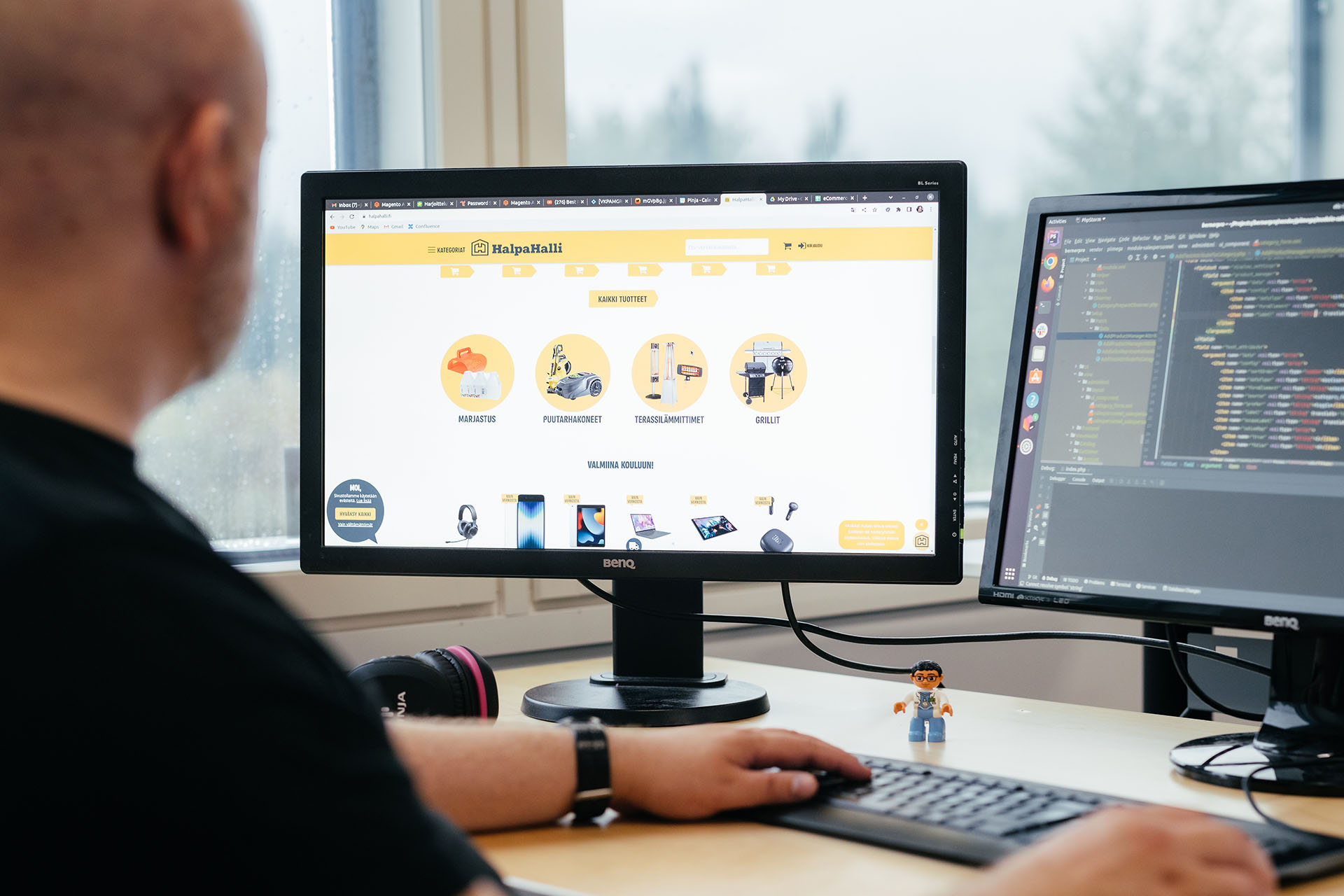
Headless digital commerce has become an increasingly popular way to build online stores, and the technology is here to stay. The architecture of headless technology offers more flexibility, scalability and customization possibilities for your online business. In this article, I will present the views of our experts on headless technology and discuss why it should be considered to develop your digital commerce for the future.
1. What is headless digital commerce, and how does it differ from traditional digital commerce platforms?
In a traditional digital commerce platform, the user interface (UI) and backend are tightly integrated. As a result, changes to the user interface may also require changes to the backend code. This can limit the ability of businesses to make rapid changes to their digital commerce or test new features in an agile way.
A modern headless digital commerce solution decouples the user interface from the backend, allowing the look and feel or user experience to be changed without affecting the backend code of the digital commerce. This allows faster testing of changes to the digital commerce. It also makes it easier to experiment with new features and create a tailored user experience, without compromising the stability or security of the backend system.Headless technology offers online retailers more flexibility, customization options, and the ability to offer highly personalized shopping experiences.
2. How does the architecture of headless digital commerce work?
The architecture of headless digital commerce is commonly built using an application programming interface (API), which connects the user interface to the backend system. The interface allows the user to access the necessary information and functions, and it can be developed independently of the backend code.
3. The benefits of headless digital commerce
The flexible architecture of headless technology provides a wide range of benefits to online retailers that ultimately benefit the end customer as well.
Easier personalization of the shopping experience
One of the main benefits of headless digital commerce is the ability to create personalized shopping experiences for customers. Third-party tools are easier to integrate into the headless architecture than traditional digital commerce platforms, making it easier to deploy recommendation algorithms and personalization software, for example. With the help of recommendation algorithms and personalization tools, it is possible to provide targeted product recommendations and tailored content for each individual shopper.A faster and more efficient digital commerce
Headless digital commerce can also help reduce page load times and improve overall site performance. By separating the user interface from the backend systems, it is easier to use modern web development technologies that enable a fast user experience for the end customer of the digital commerce. This is the key to a faster and more efficient website. Next, we will publish a separate blog post on the benefits of the technology!

In summary, the headless architecture is a modern approach to building online stores. Headless technology offers online retailers more flexibility, customization options, and the ability to offer highly personalized shopping experiences. By separating the user interface from the backend, businesses can make changes to their online stores quickly and easily.
The technology used in headless is the direction on which the future of digital commerce will rely on heavily. While technology is not automatically the best solution in all cases, it is worth considering whether it is relevant for your digital commerce now or soon.
Read more:
The potential of artificial intelligence in digital commerce
Three tips for a successful overhaul of your eCommerce systems
Making digital commerce accessible by 2025 – what you need to know about the changes to the Digital Services Act

Tero Kangas
I am the Head of Digital Commerce at Pinja, leading a team of digital commerce, product information management and ERP professionals. Contact: +358 45 127 3954 or tero.kangas@pinja.com.
Back to the Pinja Blog
Categories
- Career at Pinja (68)
- Manufacturing (46)
- Knowledge Management (45)
- Production Development (44)
- Software Partnership & Tools (42)
- Sustainability (37)
- Wood and Forestry (37)
- Bioenergy and Recycling (29)
- IT Support and Outsourcing (24)
- Ecommerce (23)
- Maintenance (22)
- Artificial Intelligence and Machine Learning (15)
- Public Services (9)
- Compliance (1)
